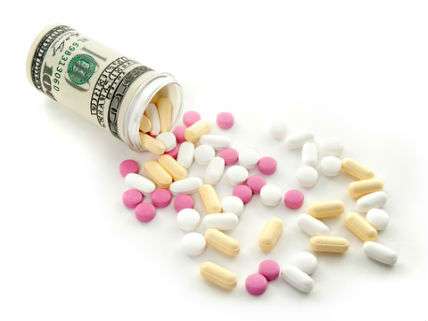The FDA Commissioner's Novel Plan for Cutting Drug Prices: Competition
Make pharmaceutical competition great again.

Scott Gottlieb, the nation's new head of the Food and Drug Administration, wants to tame drug prices the old-fashioned way: by letting more companies compete.
Generic drugs are typically sold for far less than their chemically identical branded counterparts. Yet from 2010 to mid-2015, the prices of more than 300 of the 1,441 established generic drugs experienced at least one extraordinary price increase of 100 percent or more, according to a 2016 Government Accountability Office report. Lack of competition is one major reason why.
A stunning 2,640 generic drug applications are currently stuck in the FDA's approval process. (In 2006, by contrast, the agency's generic drug backlog stood at only 800 applications.) A 2016 article in the Journal of the American Medical Association pointedly noted that "none of the approximately 1500 generic drug submitted in fiscal year 2014 had been approved by the end of that year."
Lower-priced generic drugs saved the health care system an estimated $254 billion in 2014. An FDA study has found that as the number of competing manufacturers for a drug goes up, the price falls dramatically. When two companies compete, the price falls an average of just 6 percent; when there are nine competitors, the price drops by an average of 80 percent.
Gottlieb reportedly plans to prioritize the approval of additional generic competitors, and he hopes to eliminate the backlog of generic-drug applications within a year. It isn't surprising that he'd set such a goal: He wrote an op-ed last August arguing that excessive FDA regulation was stymieing the development and approval of generic drugs.
For example, the Obama administration abruptly imposed higher manufacturing standards on generic makers in 2009, forcing many to leave the market. Gottlieb's op-ed also noted that the average cost to file a generic drug application with the agency had risen from about $1 million in 2003 to $5 million in 2016—and that sometimes it was as high as $15 million. As a result, a company would have to expect to earn considerably more revenue from a generic product for it to be worth its while to consider competing against companies already in the market.
Last year Gottlieb called for changing that; this year he'll get a chance to try.


Show Comments (19)